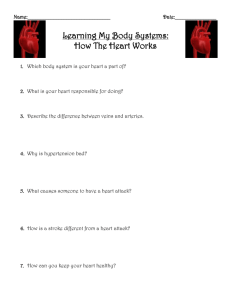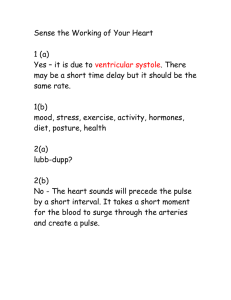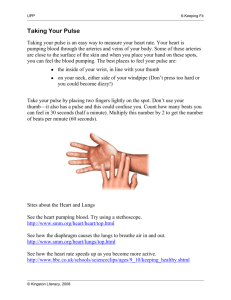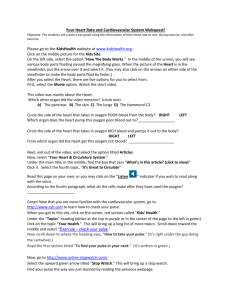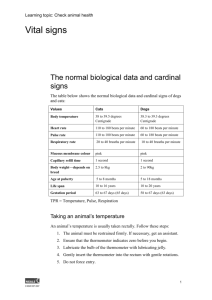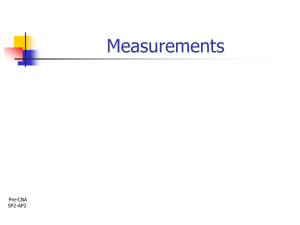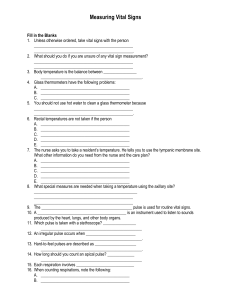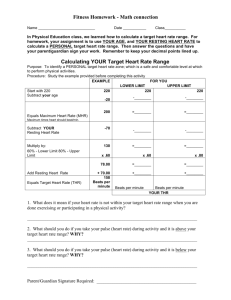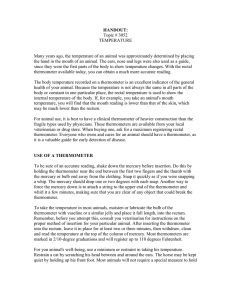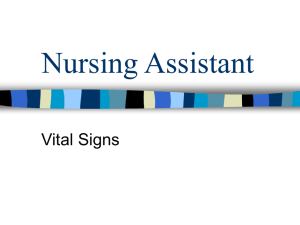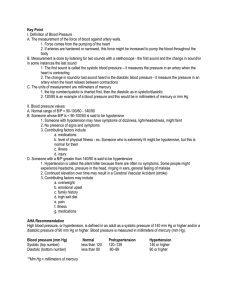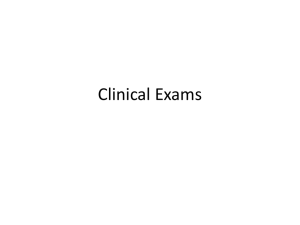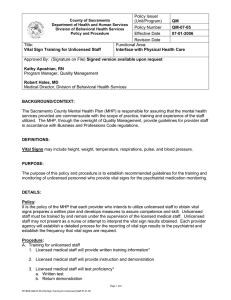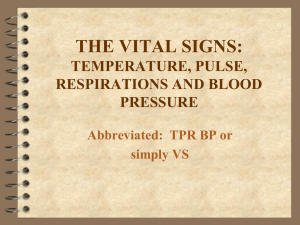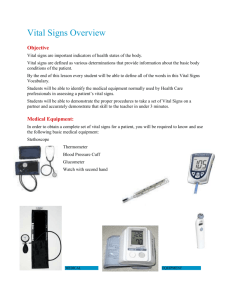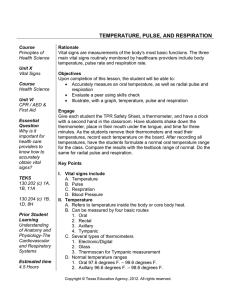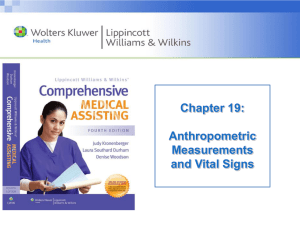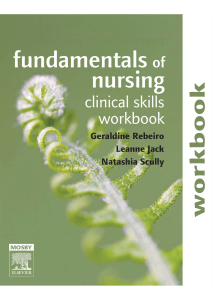Document
advertisement
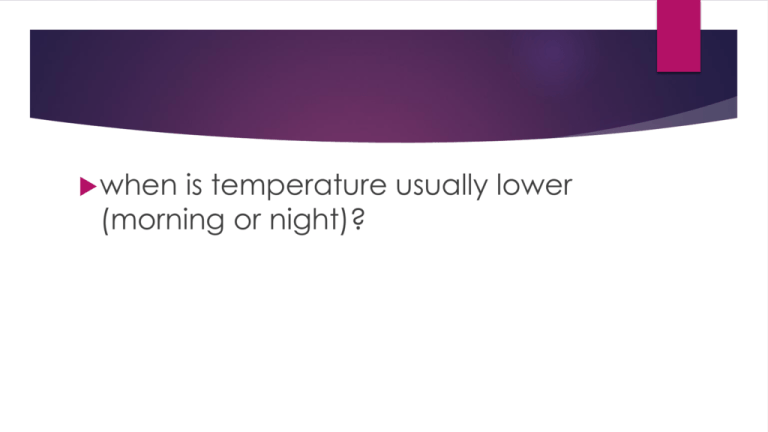
when is temperature usually lower (morning or night)? breaths above ____ is called tachypnea sitting upright to breathe is called breaths below _____ per minute is called bradypnea what is the term for "no breath?" Having 12-20 _______ is considered normal during what vital sign should patients not be aware when you are taking? what is called when it is painful or difficult to breathe? blood pressure above 140/90 is considered high and called _________ what is it called when there is a whistle sound upon exhalation? what is a sphygmomanometer used for? blood pressure below 90/50 is considered low and is called _____________ the top number of a blood pressure is called ___________ the bottom number of a blood pressure is called _____________ a patient should sit for ___ minutes before having blood pressure taken the blood pressure cuff should be placed where on a person? diastolic false? is listed before systolic. true or what is the 5th vital sign? what can lead to heart disease, stroke, kidney disease if not treated? true or false: a woman who has had a masectomy can have her blood pressure taken on the same side constant pressure in the walls of the arteries is called ___________ the ears of a stethoscope should be facing which way? Which is not considered to be one of the 4 main vital signs? a. apical pulse b. pulse c. temperature d. respirations True or false: if you notice any abnormality or change in any vital sign it is your responsibility to report it immediately to your supervisor which thermometer detects and measures the thermal, infrared energy radiating from blood vessels in the tympanic membrane? true or false: you should wear gloves while performing a rectal temperature true or false: one respiration consists of one inspiration and one expiration how long should a thermometer for an oral temperature be held in place? what is hyperthermia? what is hypothermia? 2 point question what color is the glass tip on a rectal thermometer? what size is the bulb? how long should a thermometer be held in place for a rectum temp? 2 point question: what color tip does a glass thermometer for oral temperature have? what size bulb? who should not receive a rectal temperature? what is the term for this definition: the measurement of the balance between heat produced and heat lost. what is the most accurate route to take a temperature? which does not lead to increased body temperature? a. illness/infection b. exercise c. starvation d. excitement what is another name for fever? what is the term for this definition: the pressure of blood pushing against the wall of a vein as the heart beats and rests bradycardia is considered when the heart beats less than ____ beats per minute tachycardia is considered when the heart beats more than ____ beats per minute words such as strong or weak describes the rhythm of a pulse. True or false? which part of the body is an apical pulse taken? what instrument is used to take an apical pulse? what pulse area is best to take on infants? which way should the ear pieces be facing on the stethoscope? where is the carotid pulse located? where is the popliteal pulse located? where is the brachial pulse located? where is the radial pulse located? a pulse is defined as regular or irregua
